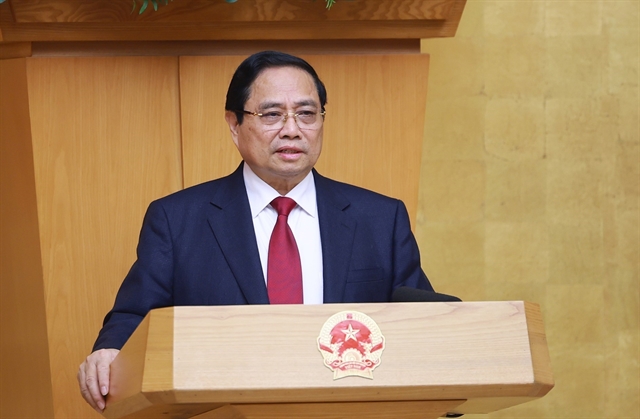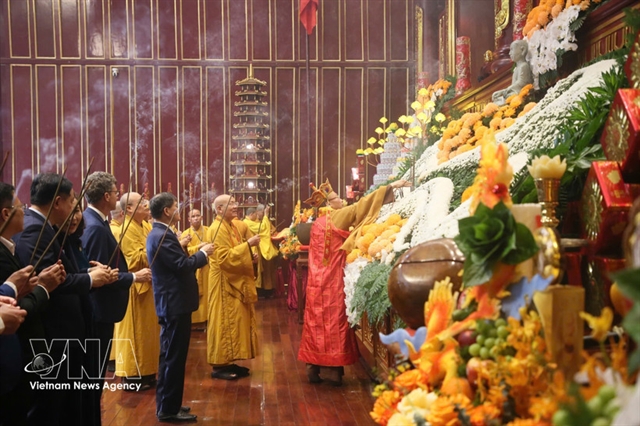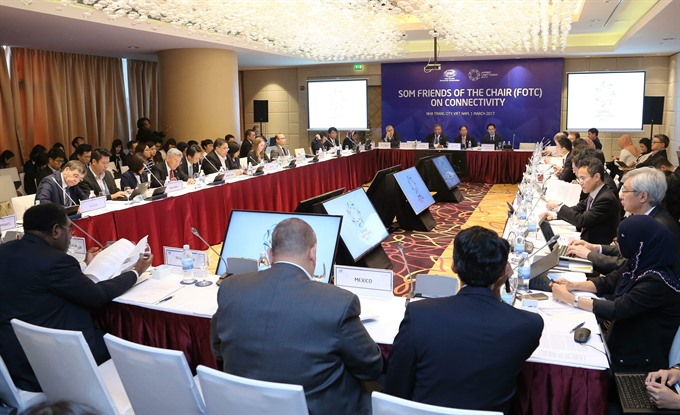 Politics & Law
Politics & Law

Tomorrow and the next day senior officials from the 21 APEC economies will get together for their ever first meeting of the year in Nha Trang and make decisions on Việt Nam’s priorities and the particular initiatives to be carried out in the year.
 |
| Participants said the Asia-Pacific Economic Cooperation (APEC) Forum should have a long-term vision and Việt Nam has put forth various initiatives to help the forum keep its right track.—VNA/VNS Photo Doãn Tấn |
NHA TRANG - During the next two days senior officials from the 21 APEC economies will get together for their first meeting of the year in Nha Trang and make decisions on Việt Nam’s priorities and the initiatives to be carried out in the year.
The APEC Secretariat’s Executive Director Dr. Alan Bollard made the announcement on Wednesday during a meeting with local and foreign media ahead of the first Senior Officials’ Meeting (SOM 1).
“Việt Nam has proposed four big priority areas, one of them is about sustainable growth - the growth that we also want to be inclusive, and focus on who would be beneficiaries of such growth.”
The other three priorities are to improve regional economic integration, help small businesses ‘that are not well integrated into the global economy’ get access to modern technology, and about food security and agriculture’s adaptation to climate change.
The APEC leaders will also look at ways to improve energy sustainability, said Bollard.
About 60 meetings of technical working groups covering the whole range of APEC activities related to trade, investment, border barriers, regulatory reform and capacity building have finished since APEC Year 2017 began on February 18.
“We try to move the whole region to get better growth and better living standards for people,” said Bollard
APEC is focusing on the benefits from economic integration, from economies coming closer together and from trade and investment.
“Last year, when APEC leaders met in Lima and talked about anti-globalisation, they were quite concerned that we should be communicating better what the advantages of trade, investment and globalisation are.”
“We should not be ignoring those parts of economies suffering from losing competitiveness,” Bollard said.
MSMEs in spotlight
One of the focuses that APEC economies will be looking at is inclusive growth and economic inclusion - “a very important issue that needs to be discussed this year” to let “all members of APEC economies and all segments of society benefit from economic integration, and trade libelisation,” said Director at the APEC Policy Support Unit, Dennis Hew.
“Work on micro, small and medium enterprises (MSMEs) has been going on in APEC for a number of years. In this regard, host economies often look at different areas This year - the Việt Nam APEC 2017 - we focus on supporting MSMEs in the digital age,” Hew said.
“Upon the rapid change in technology, it is important to discuss how we can help MSMEs in terms of accessing technology and addressing challenges for them to use technology to gain access to the global economy.”
The Boracay Action Agenda was launched in the Philippines in 2015, which looks into a range of areas from trade facilitation, and regulatory and structural reforms to support MSMEs.
Besides supporting MSMEs, APEC has been active in supporting women in the economy, particularly in the private sector, through improved financial education to help businesswomen and entrepreneurs access finance and to understand financial services, the press conference heard.
Regional economic outlook
The APEC region expects to grow by 3.3 per cent in 2017 with a slight improvement in 2018 and 2019 at 3.6 per cent.
“We can see some signs of improvement in regional economic growth and much of that growth continues to be driven by private consumption, as well as Government spending,” said Hew.
“Trade continued to underperform this year. For the first nine months of 2016 from January to September, the APEC region - in terms of its merchandised trade value - contracted by 6.4 per cent for exports, and 6.6 per cent for imports.”
“However, some of the APEC economies, particularly Việt Nam, have shown signs of significant improvement in trade numbers this year.”
Regarding foreign direct investment (FDI), the Asia-Pacific region continues to attract a large share of global FDI flows, about 55 per cent. And at least five of the top ten recipients in the world come from APEC economies, according to Hew. - VNS